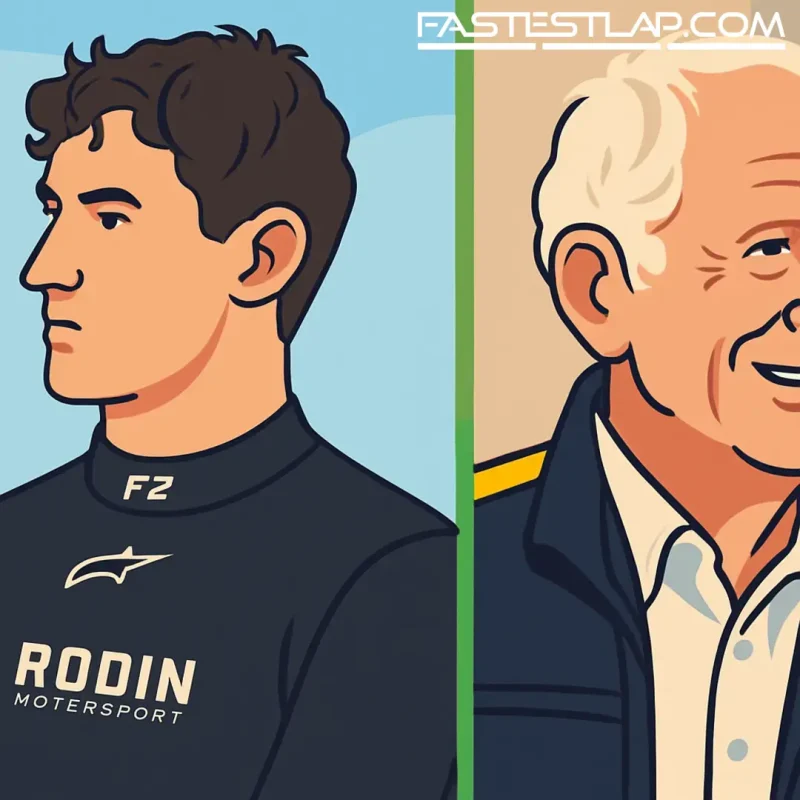Marko shuts door on Alex Dunne for 2026 Red Bull seats — but keeps a line open
Helmut Marko’s verdict on Alex Dunne is blunt, and very Red Bull: not now. The Austrian has confirmed the Irishman won’t be in either Red Bull-controlled Formula 1 car in 2026, cooling a burst of paddock chatter that followed Dunne’s sudden split from McLaren on the eve of the Singapore Grand Prix.
“He’s not an option for us,” Marko told Austria’s Kleine Zeitung, a line that lands with the finality you’d expect from the man who decides Red Bull’s junior fortunes. And yet, as is often the case with Marko, the message is layered. The door to an F1 race seat is closed for next year, but the conversation isn’t over.
Dunne’s departure from McLaren surprised plenty in the junior ranks. After 18 months under the Woking umbrella — covering his F3 campaign and an F2 rise that’s made him a frontrunner — the relationship fractured over what comes next. Timing didn’t help. Dunne is still alive in the F2 title fight heading into the Qatar and Abu Dhabi finale, but he needs a swing of luck after a season peppered by operational slips and elbows-out incidents not always of his making.
The bigger, immediate problem is bureaucratic rather than political. Dunne doesn’t yet have the required 40 FIA Super Licence points. He needs a top-three finish in this year’s F2 championship to hit the threshold; miss it, and the realistic option is another season in F2 to bank the remainder. That’s the crux of why Red Bull talks have shifted. PlanetF1 first reported that discussions moved beyond mere introductions in Singapore; now, the focus is less about putting Dunne into a Red Bull or Racing Bulls cockpit and more about whether the energy drink giant might help support an F2 campaign while he completes the paperwork.
Don’t mistake that nuance for a lack of interest. Dunne’s form — two feature race wins and a stack of podiums — compares well to Red Bull’s current junior cohort. Oliver Goethe, Pepe Martí and Arvid Lindblad are the names on the in-house ladder, and Dunne has out-scored them in F2 this season. But Marko has a type, and he telegraphed it again by singling out Lindblad.
“[Lindblad is] younger than Hadjar,” he said, referencing fellow Red Bull prospect Isack Hadjar. “And you have seen in the past that age plays a role in Formula 1. But in general, he is another hope of ours. We’ll see him in the car this year.”
That last line reads like a promise of more track time before the year is out — free practice mileage at minimum — and underlines where the momentum sits inside the Red Bull system. If the senior team or the sister outfit do make changes for 2026, Lindblad looks first in line.
As for Dunne, there’s no sense he’s fallen off the radar. He’s simply stuck in the sport’s most unforgiving holding pattern: fast enough to be in the conversation, not yet credentialed enough to end it. The split from McLaren resets the chessboard, but it doesn’t change the maths. Finish top three in F2 and the Super Licence box is ticked. Miss, and the F1 door remains only half-open, no matter who’s taking the meeting.
Red Bull’s stance is consistent with how they’ve played it for years. They move early when they’re convinced and wait when they’re not, and the super licence tally is a convenient, if rigid, line in the sand. It also spares them a choice for 2026 they don’t need to force. Between their two teams, the driver market will generate its own noise soon enough. For now, Marko has trimmed the rumour mill on one front and sent a familiar message on another: prove it, then call me.
So Dunne heads into the final F2 rounds with a clearer target and a cleaner narrative. The talent is obvious. The interest is real. The path — as is often the case in this business — runs straight through the points table.




